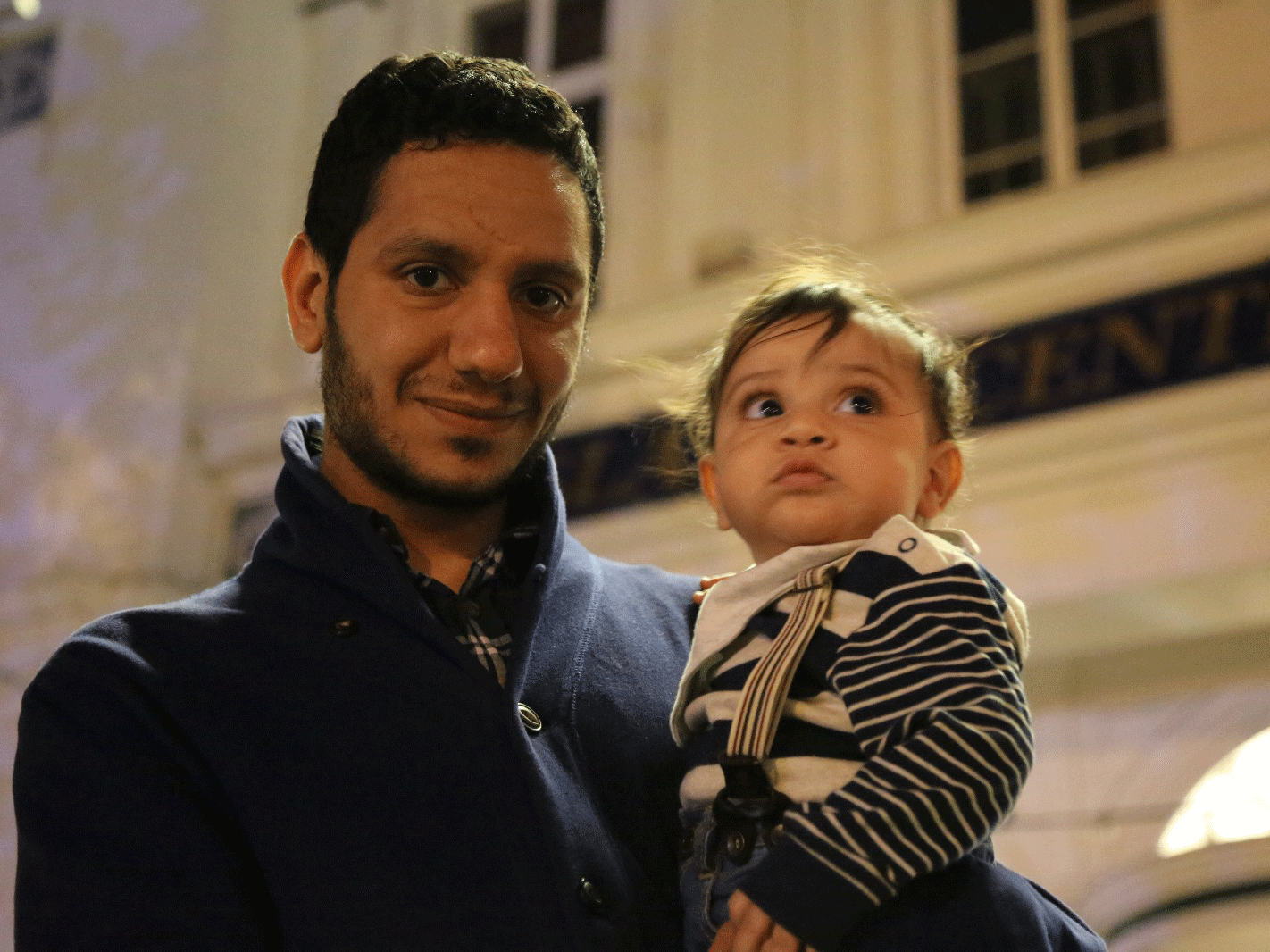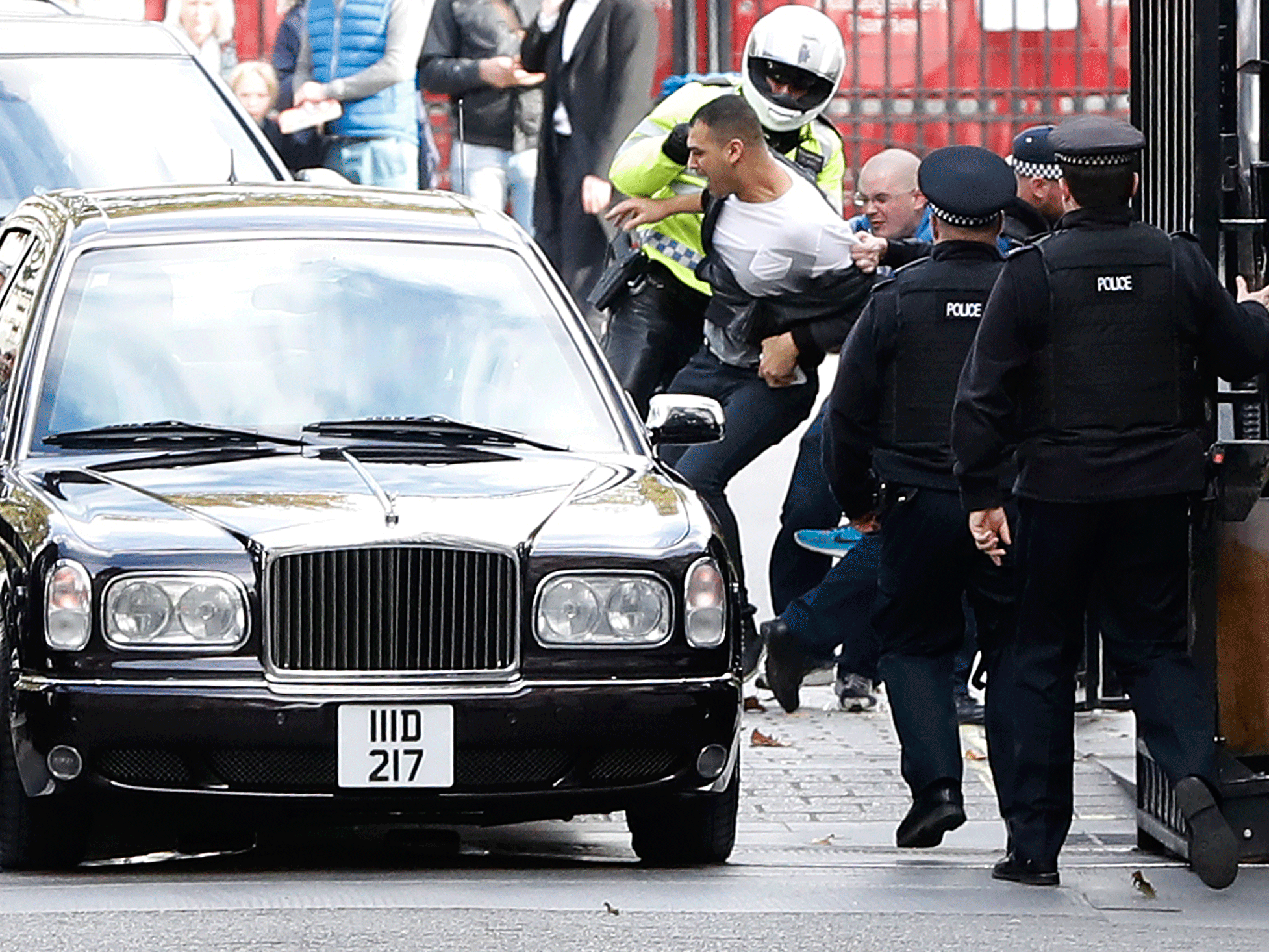Exclusive: Sayed Alwadaei, an outspoken opponent of Charles’s visit to the Gulf state, feared Bahrain would detain his infant son and wife forever as a punishment for his involvement in anti-government protests
A Bahraini human rights activist and torture survivor claims Prince Charles’s visit to the Arab kingdom is being used to “whitewash” its record on civil liberties.
The Prince of Wales is touring the Gulf state until Friday as part of a trip that includes “greenlighting” a £30m British navy base.
Refugee Sayed Alwadaei, director of advocacy at the Bahrain Institute of Rights and Democracy (BIRD), spoke exclusively to The Independent after recently being reunited with the family he thought he would never see again.
The stateless campaigner is asking Prince Charles not to allow himself “to be used as an ambassador for the arms industry” and to visit Nabeel Rajab who is in prison for posting anti-government tweets.
“Prince Charles’s visit is giving the Bahrain authorities a green light to continue their oppression and using him to whitewash human rights abuses,” said Mr Alwadaei.
Prime Minister Theresa May is also scheduled to visit the kingdom for a Gulf Cooperation Council Summit in December.
“It just shows you how low this Conservative Government goes,” Mr Alwadaei added.
The royal visit follows the return of Mr Alwadaei’s 19-month-old son, Sayed Junior, and wife Duaa to his north London home after they say they were violently interrogated in Bahrain.
Their detention followed Mr Alwadaei pictured being restrained by police in London when he was protesting as the King of Bahrain, Hamad bin Isa al Khalifa, visited Downing Street on 26 October.
A few hours later, Ms Alwadaei said she was stopped by two police officers at Bahrain’s international airport and dragged along the floor. Her son was snatched from her and they were prevented from boarding a return flight to London after a month spent in Bahrain visiting family.
Ms Alwadaei claims that during a seven-hour detainment, she was abused and beaten by officers who threatened that they “will get the animal [Sayed]”.
She says she was subsequently banned from travelling until she and her son were finally permitted to fly back to the UK in the company of a US diplomat on 1 November.
“The British government is backing an oppressive regime,” said Mr Alwadaei, when asked if he regrets his protest last month. “For me it was an exercise in exposure to show how far those oppressors go. I will do whatever it takes to raise awareness and I’m prepared to pay the consequences.”
The Brighton University electronics graduate, who returned to Bahrain to build a career, says he was previously beaten and left bleeding in the street at a February 2011 demonstration inspired by the Arab Spring.
He says he was tortured for 28 days, during which time he was stripped naked, blindfolded and beaten and given electric shock treatment as a punishment for talking to the media.
The military court handed out a four-year prison term for terror charges, which was reduced to six months.
Mr Alwadaei, who wrote a Voices article for The Independent in February, first sought British asylum in 2013 and was finally stripped of his Bahraini citizenship in January 2015.
Thirty three countries, including the UK, called for the release of political prisoners and a revision of freedom of expression laws in Bahrain in September 2015.
Human Rights Watch list Bahrain’s civil liberties record as “dismal”.
Amnesty International says police have been deliberately killed in Bahraini bomb explosions amid Sunni-Shi’a in-fighting and hundreds convicted in unfair terrorism-related trials.
The death penalty and marital rape are also legal in the country.
A Foreign Office spokesman said: “The UK is working closely with the government of Bahrain to provide extensive reform assistance focused on strengthening human rights and the rule of law. We believe that it is not good enough to merely criticise other countries from the sidelines. Only by working with Bahrain are we able to bring about the changes we would like to see in the country.”
A Downing Street spokesman added: “Our strong relationship with Bahrain means that we are able to have frank and honest conversations on human rights at the highest levels.
“Just last month, the Prime Minister met with the King of Bahrain who outlined the progress that had been achieved through Bahrain’s ongoing domestic reform plan, designed to bring greater inclusivity to the political and social fabric of the country. ”



